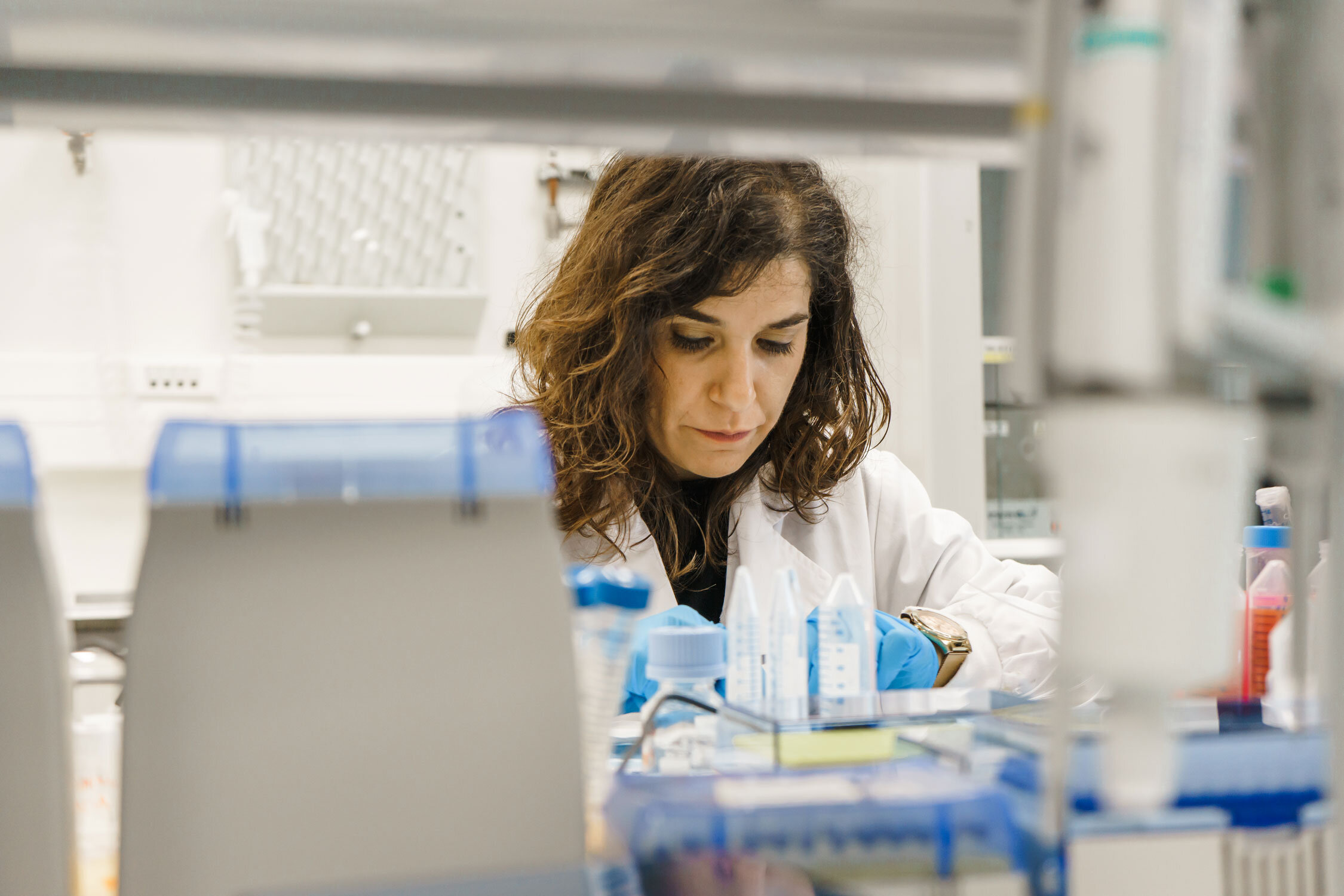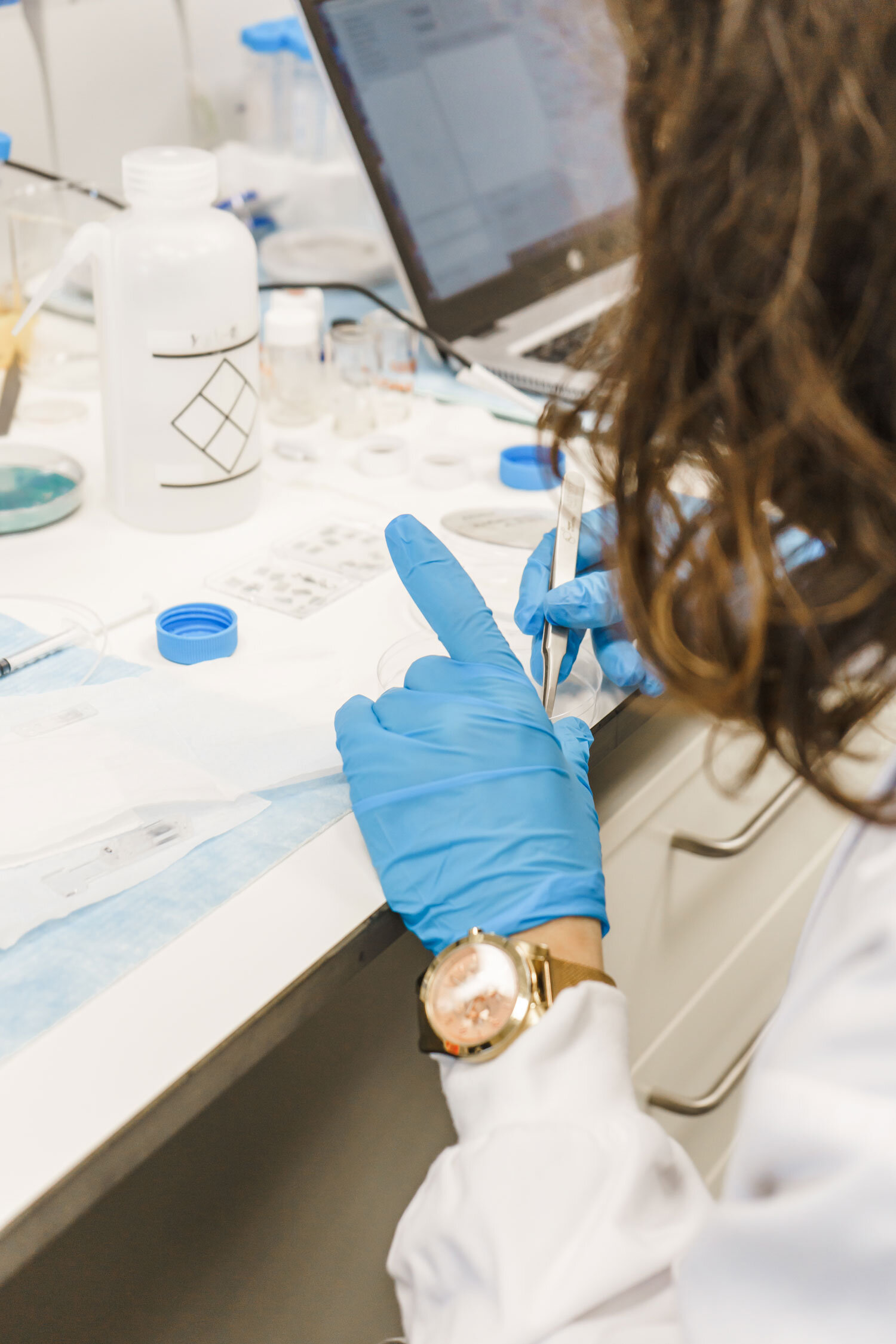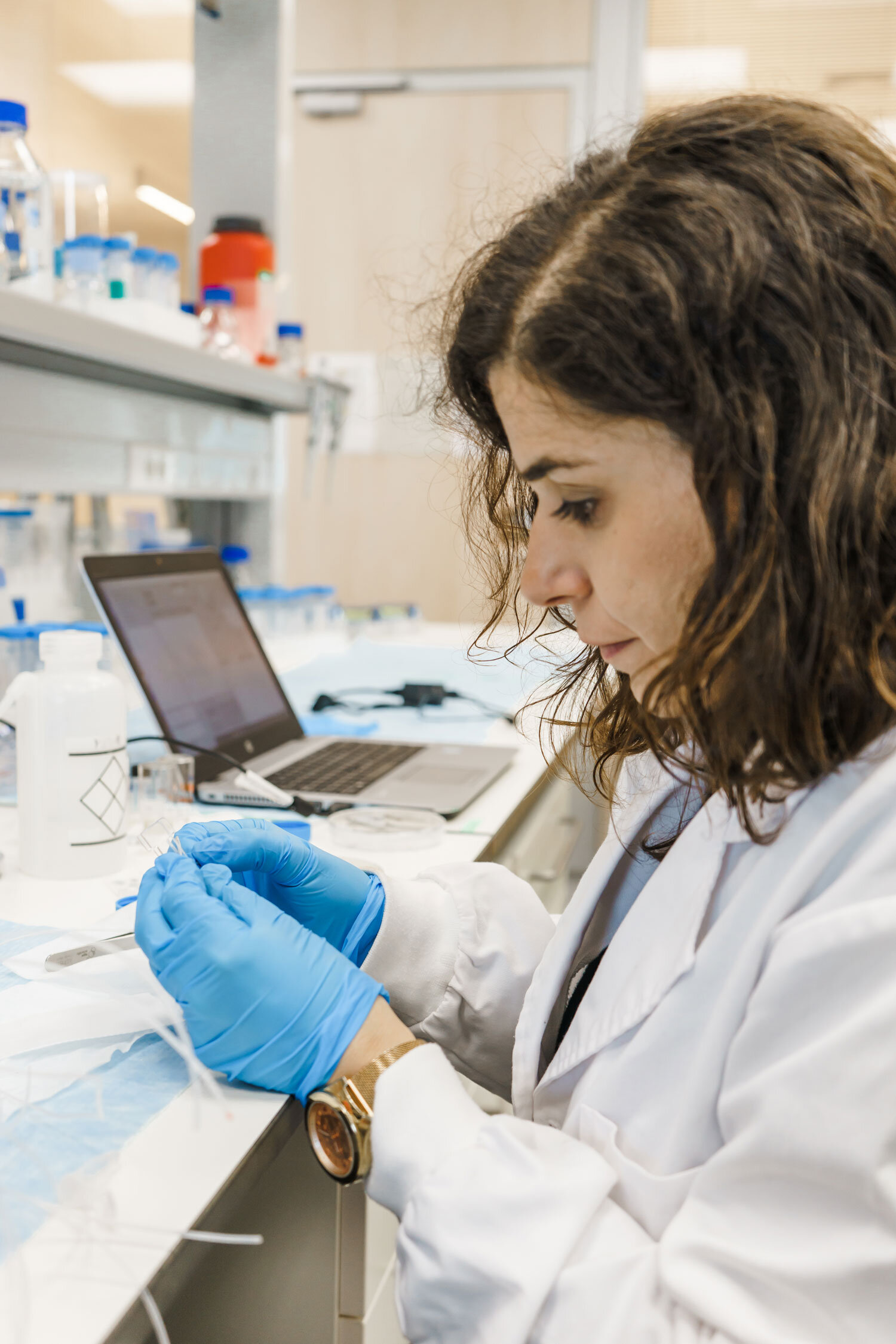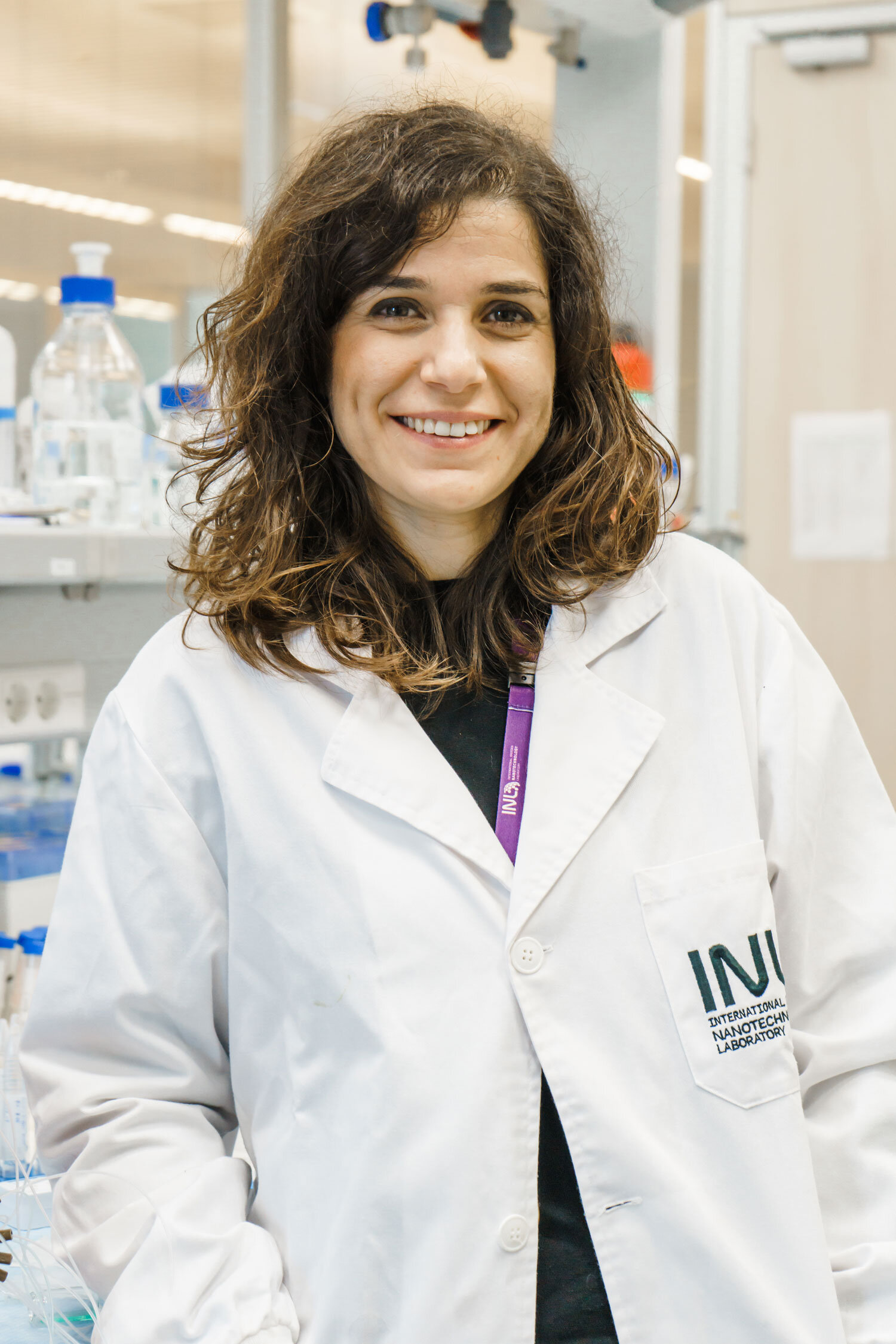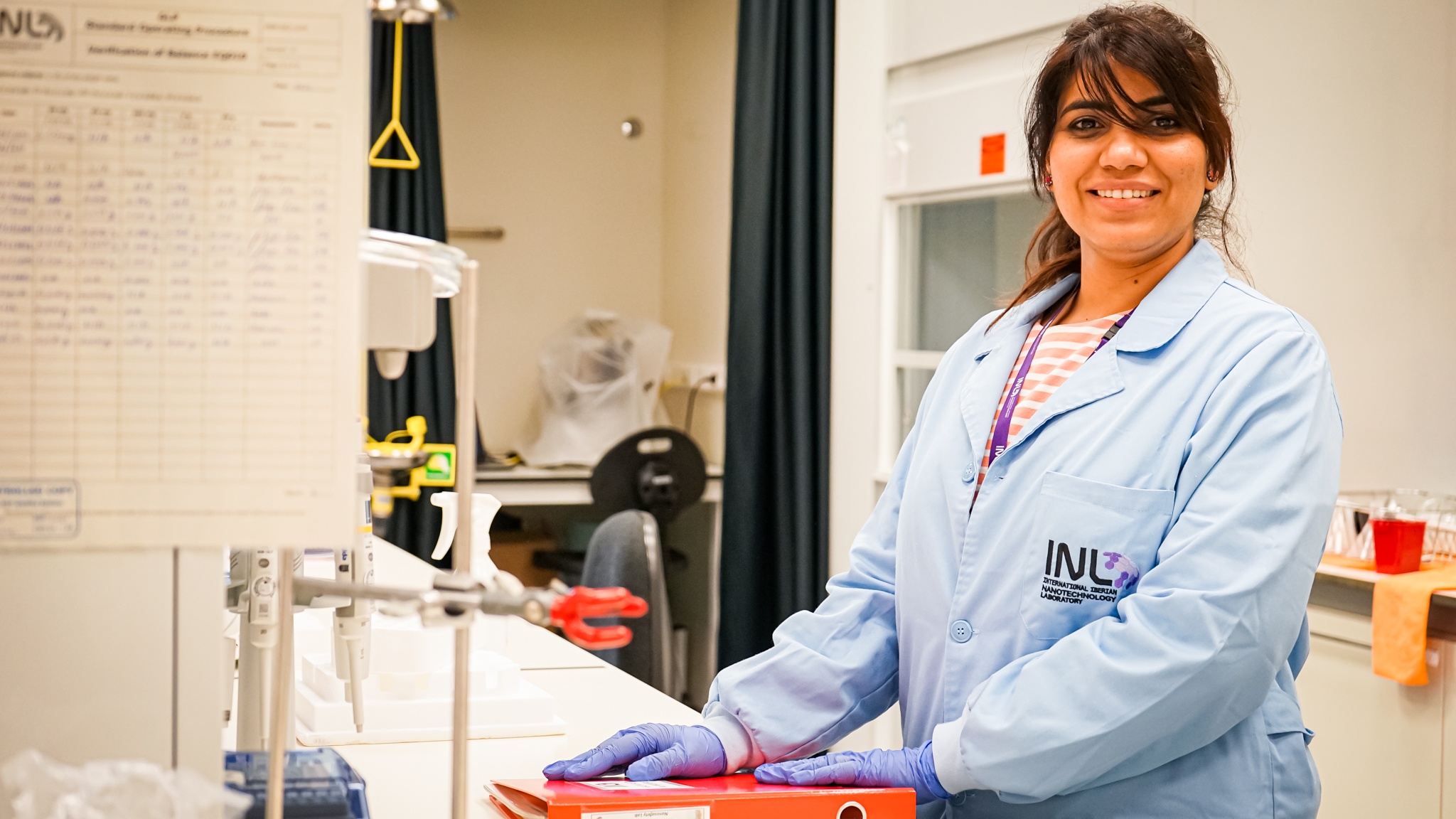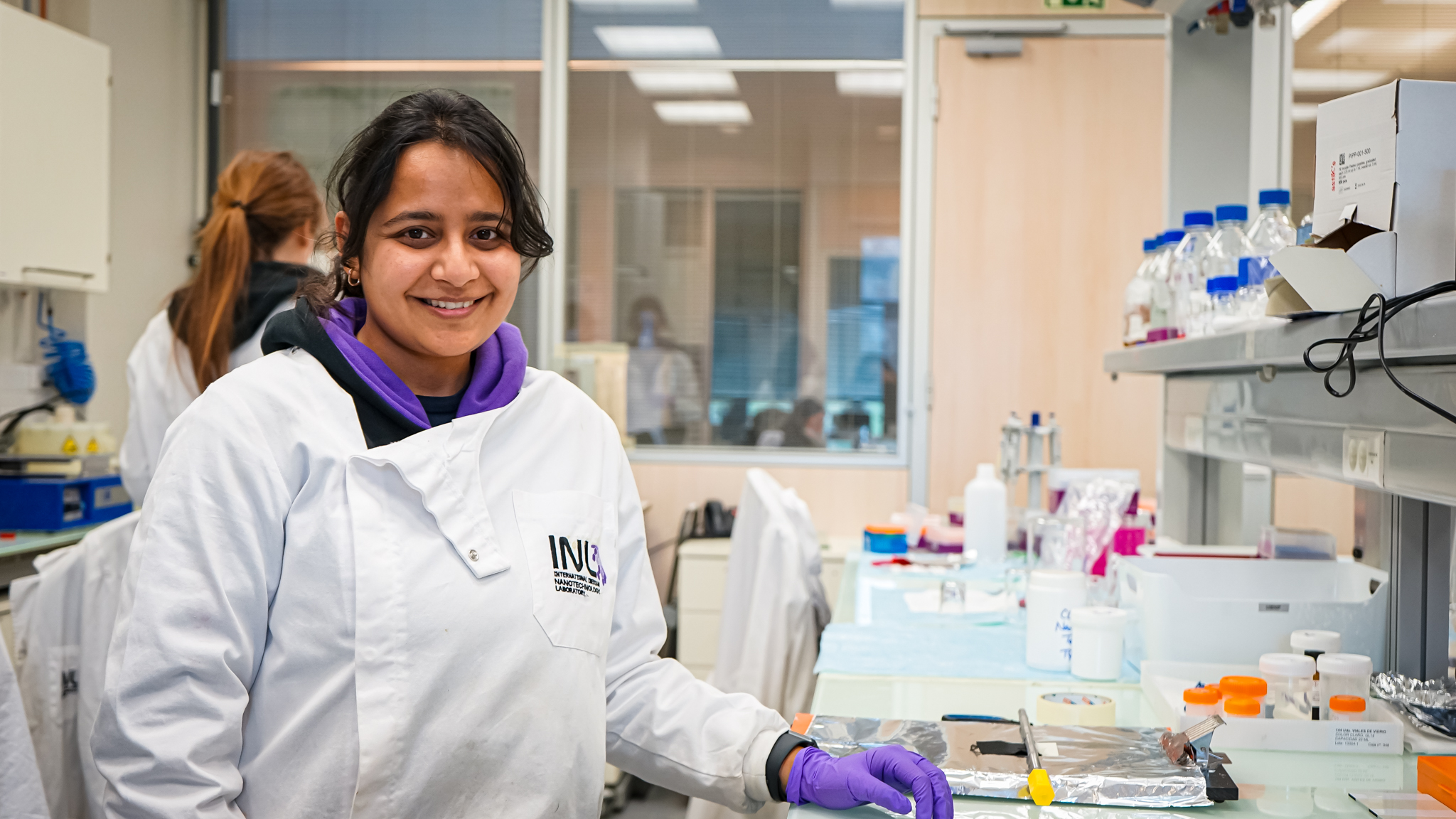
Celebrating WOMEN IN SCIENCE: Interview with Joana Guerreiro
March 6, 2020
Joana Guerreiro is a Research Fellow at Food & Quality Research Group at INL. Currently, she integrates a project which aims the amplification and detection of environmental DNA (eDNA) of invasive species. Her main goal is to develop and design an optical biosensor for eDNA detection from water samples. Portability and point of care detection is also an important project task therefore microfluidics could also play an important role in the overall device.
Her research interests cover the continuous development of (nano)optical biosensors devices and further application of these devices in environment, health and food chemistry.
What got you interested in the Food Quality and Safety field?
I would say, food-related topics were part of my personal interest since I remember! It started when I gained conscious that “we are what we eat”. Then I became aware of the role of food quality and safety on the health of end-consumers. I believe the society now is more and more aware that food safety does not start on our plates/supermarkets, but way before… Our food starts to be produced in farms and crops followed by the whole production line until reaching consumers. As an enthusiast of animal rights (I’m an animal lover) and environment protection, I started to see the big picture.
If people want quality food, they need to care about animal welfare, misuse of pesticides to maximize crops production and environmental contamination. In fact, as consumers, we have a saying just by deciding about the products we buy. Therefore, I see Food Safety and Quality as a topic which involves many other relevant fields as a whole such as the environment.
From the scientific point of view, my master was already in the field of Food Quality and Safety where I have developed low-cost devices to detect the presence of antibiotics (some supposed to be banned from production) in water and fish from aquaculture. Later on, during my PhD I was focused on studying sensorial quality parameters of wine. Nowadays, here at INL, I was mostly devoted to developing sensors to identify food fraud and specific microorganisms of interest.
How would you explain the importance of your research to a non-scientific person?
I have been working with DNA biosensors applied to food quality and safety. The reason we use DNA is that it contains genetic information which is unique for each organism (bacteria, plant or animal). Therefore, we can use DNA based biosensors to identify specific species. In food adulteration, for example, olive oil can be mixed with other oils (e.g. palm oils), and just by looking or even tasting it we will never be able to know. Consumers might be paying for an authentic product but instead getting an adulterated one. By using these sensors we can check for food fraud and protect consumers.
Our research can also be applied to the detection of food pathogens. Food may become contaminated at any point from production to distribution. Good practices were already implemented to minimize food contaminations however there is still a large incidence of foodborne diseases. At the Food Quality and Safety Group, we develop tools to identify foodborne pathogens which can be used at any stage of food chain production. This way, producers address within a few hours if their products are safe to distribute or sale to end-consumers. With these devices, food production can also be more efficient by reducing production losses. More importantly, consumers have safer products which have a huge impact on public health.
What inspires you and excites you about science?
What really excites me about science is its unlimited potential to change and improve people’s life and the whole planet. Trying to discover the unknown, understanding mechanisms and develop tools, which could contribute to improving the overall quality of life, is my driven motivation. I would like to help change the world to a better place, so if I have a contribution even if super tiny I will be super happy.
In terms of inspiration, most of the times I would say nature. When doing research, somehow the answers you are looking for, are just ahead and often by observing nature you can learn from it. Science can also be scary, thus as a scientist, you also have to use the acquired knowledge in a responsible way.
How do you see the future of your Research?
My research is focused on the development of tools applied to different fields, however as mentioned before, the impact in public health and environment are my priorities. I also target the use of sustainable, “green” and affordable materials and devices which can be also available for poor countries.
As a scientist, we need to be “open” to re-question knowledge considered as a fact therefore I would like to keep my mind open for the future and do my best.
